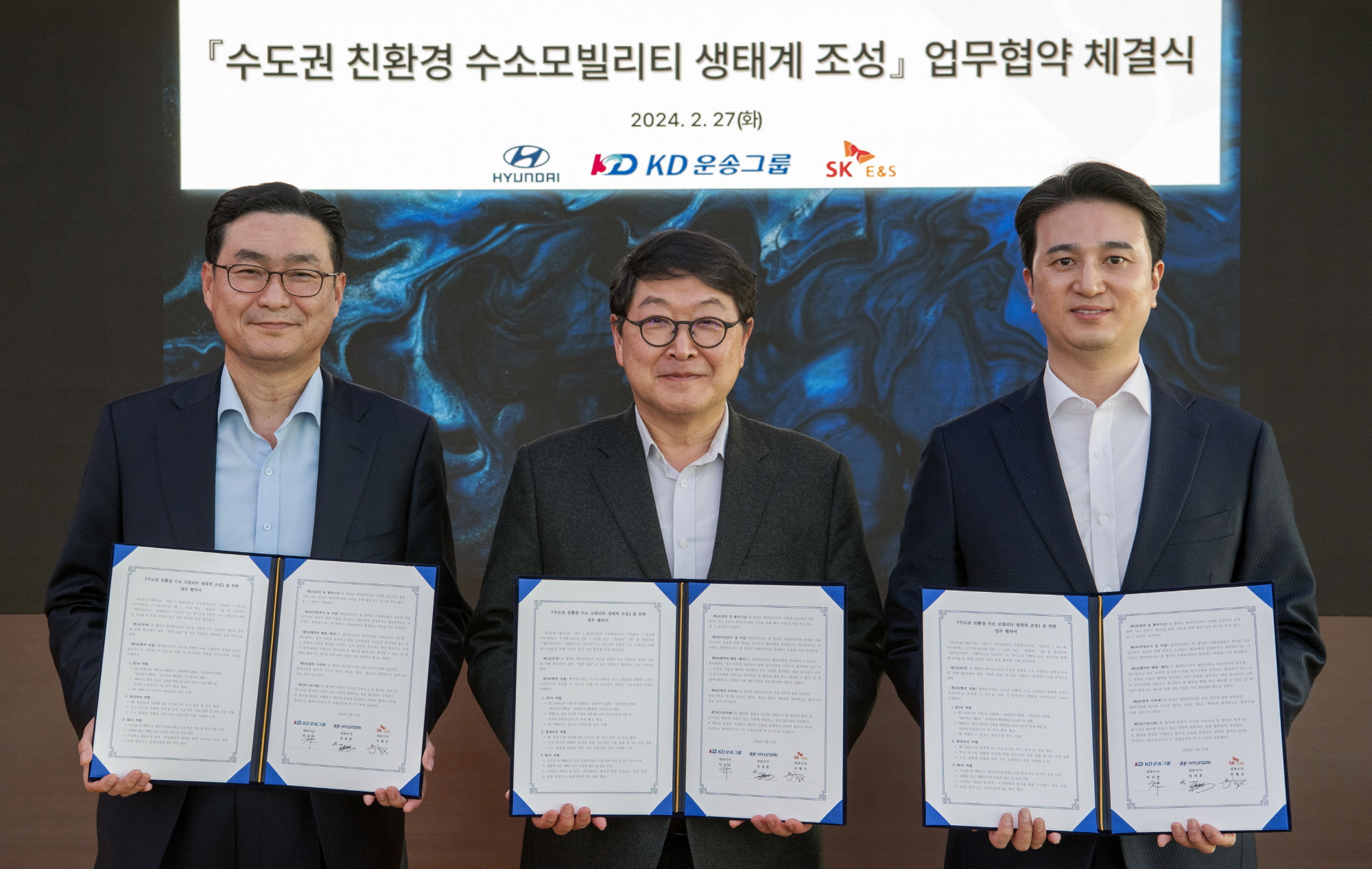
Hyundai Motor has teamed up with KD Transport Group and SK E&S to create a hydrogen mobility ecosystem in the capital region. They plan to replace 1,000 public transport buses currently operating in metropolitan areas with eco-friendly hydrogen buses and strengthen maintenance and charging infrastructure to facilitate a full transition to hydrogen mobility.
On March 27, at the SK Serin building in Seoul, Vice President Jung Yoo-seok of Hyundai’s domestic business division, CEO Heo Sang-jun of KD Transport Group, and CEO Choo Hyung-wook of SK E&S, along with other officials, signed a ‘Business Agreement for the Creation of an Eco-friendly Hydrogen Mobility Ecosystem in the Capital Region.’
This agreement is the result of collaboration among Hyundai, KD Transport Group, and SK E&S to introduce eco-friendly hydrogen buses and establish liquefied hydrogen charging stations, aiming to activate the hydrogen mobility ecosystem in the metropolitan area.
Under the agreement, the three companies will convert 1,000 city, metropolitan, and airport buses operating in the capital region, including Seoul and Gyeonggi Province, into hydrogen buses by 2027. The goal is to start with 100 buses this year and gradually complete the introduction of hydrogen buses by 2027.
They will also work together to strengthen maintenance support for hydrogen buses in the capital region and establish liquefied hydrogen charging stations. Liquefied hydrogen is hydrogen that has been cooled to -253°C, providing higher transport efficiency and quicker charging compared to gaseous hydrogen.
During this process, Hyundai will cooperate actively to ensure timely production and supply of hydrogen buses while providing stable maintenance services through the maintenance network in the Seoul and Gyeonggi regions. Additionally, they plan to work towards diversifying the range of hydrogen mobility vehicles in the future.
KD Transport Group will deploy the introduced hydrogen buses onto routes and provide sites for constructing the liquefied hydrogen charging stations. SK E&S will establish at least six liquefied hydrogen charging stations in the capital region and ensure a stable production and supply of liquefied hydrogen.
Furthermore, the three companies plan to actively promote the expansion of hydrogen bus implementation through ongoing discussions with the government and local authorities while enhancing collaboration across all hydrogen business areas.
Hyundai believes that this agreement with KD Transport Group and SK E&S will lead to a significant expansion in the implementation of hydrogen buses. They expect that other transport companies will also move towards the adoption of hydrogen buses, starting with KD Transport Group, which is the largest land transport company in Korea, holding approximately 5,000 buses across 18 passenger transport companies nationwide.
Hyundai’s Vice President Jung Yoo-seok stated, “Hydrogen buses not only reduce carbon emissions in daily life but can also filter out ultrafine dust on the roads, providing significant public benefit as the ultimate eco-friendly mobility option.” He added, “Hyundai will contribute to accelerating the transition to a hydrogen society by developing various hydrogen vehicles and providing leading technical support for their stable operation.”
Lee Sang-jin daedusj@autodiary.kr

